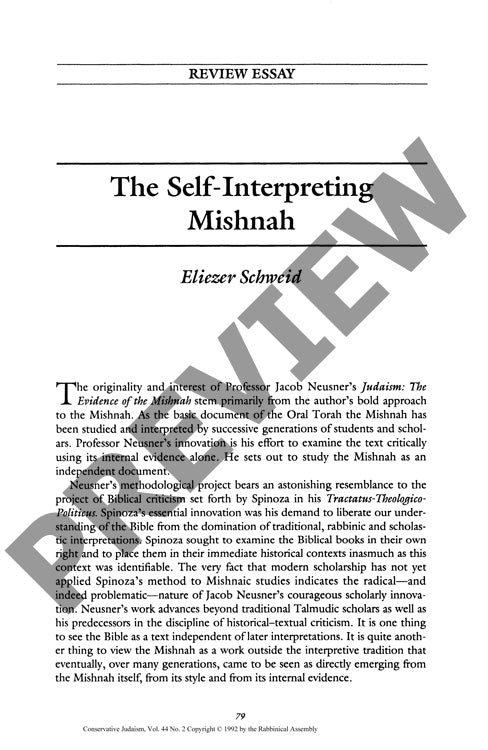The Self Interpreting Mishnah Review Ess
Couldn't load pickup availability
Jacob Neusner's ambitious attempt to interpret the Mishnah solely through internal evidence challenges centuries of traditional rabbinic interpretation, raising fundamental questions about how we understand this foundational Jewish text. By treating the Mishnah as an independent literary document, Neusner employs structural-phenomenological analysis to uncover its purpose, message, and intended audience, echoing Spinoza's revolutionary approach to Biblical criticism. His analysis reveals the Mishnah as primarily a theological work focused on ritualized religious life, particularly how priestly purity laws were adapted for non-priestly Jewish scholars and householders in the wake of the Temple's destruction. Yet this methodological isolation of the text from its interpretive tradition and historical context proves problematic. While Neusner's internal analysis yields valuable insights, it inadequately addresses the Mishnah's relationship to the broader tradition of Oral Torah and its function within Talmudic academies. His interpretation ultimately reflects contemporary Jewish theological concerns more than historical understanding, drawing notable parallels to Franz Rosenzweig's twentieth-century Jewish theology. The work thus stands as both innovative scholarship and a reflection of modern Jewish thought's ongoing quest to reinterpret classical sources.

More Information
-
Physical Description
-
Publication Information
Published 1992
ISBN
-
Publication Credits
Eliezer Schweid

